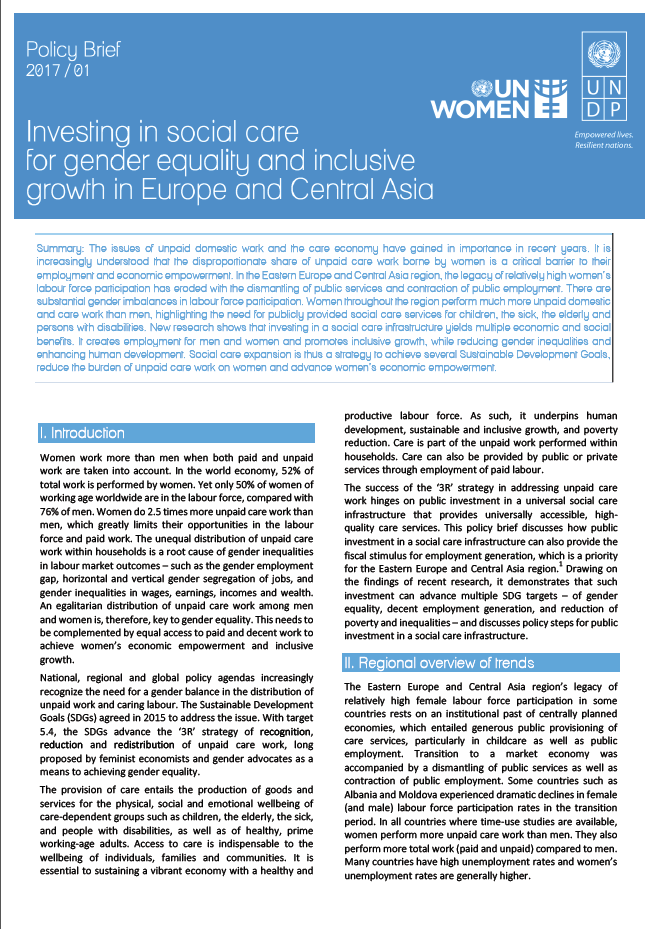
Policy Brief - Investing in social care for gender equality and inclusive growth in Europe and Central Asia

The issues of unpaid domestic work and the care economy have gained in importance in recent years. It is increasingly understood that the disproportionate share of unpaid care work borne by women is a critical barrier to their employment and economic empowerment. In the Eastern Europe and Central Asia region, the legacy of relatively high women’s labour force participation has eroded with the dismantling of public services and contraction of public employment. There are substantial gender imbalances in labour force participation. Women throughout the region perform much more unpaid domestic and care work than men, highlighting the need for publicly provided social care services for children, the sick, the elderly and persons with disabilities. New research shows that investing in a social care infrastructure yields multiple economic and social benefits. It creates employment for men and women and promotes inclusive growth, while reducing gender inequalities and enhancing human development. Social care expansion is thus a strategy to achieve several Sustainable Development Goals, reduce the burden of unpaid care work on women and advance women’s economic empowerment. This policy brief produced jointly by UN Women and UNDP advocates for more public investments in social care infrastructure in Eastern Europe and Central Asia by detailing the substantial advantages and returns countries stand to gain in the short and long run from such investments.